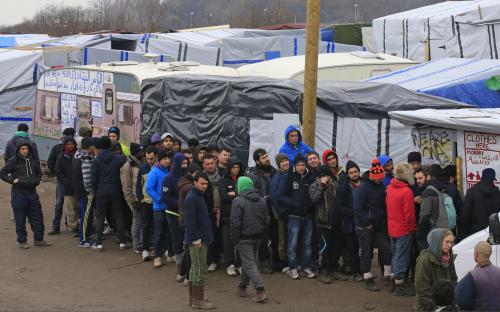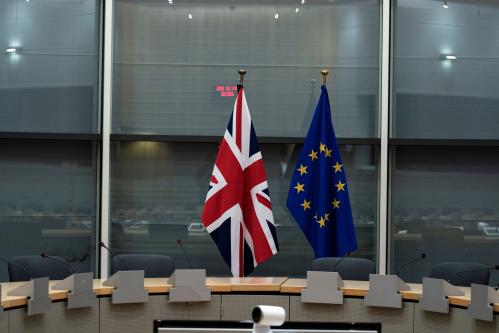On October 2, Hungarians were called to the ballot box to vote on the question “Do you want the European Union to be able to prescribe the mandatory settlement of non-Hungarian citizens in Hungary even without the consent of Parliament?” The referendum highlights a paradox, at the heart of many of Europe’s challenges today: Policymaking in a variety of domains increasingly takes place at the supranational level, while in the eyes of most citizens, politics still play out overwhelmingly through a national perspective. The lack of a pan-European public sphere only compounds this problem.
Viktor Orbán and Hungary’s voice
Hungarian Prime Minister Viktor Orbán has long made his views on migrants and refugees abundantly clear. He repeatedly claimed the existence of an “obvious” link between migration and terrorism; made it virtually impossible for migrants reaching Hungary’s borders to lodge any asylum claims by building a “massive wall” to keep criminals and immigrants out of the country (ring any bells?); and clashed with fellow EU prime ministers, accusing them of being soft on migrants and refugees.
At the same time, the Justice and Home Affairs Council of the European Union voted last year in favor of a plan to relocate 120,000 asylum seekers from front-line states Greece and Italy to other EU member states. The decision, which Hungary and others opposed—and are de facto sabotaging on implementation—was meant to share the burden of the refugee crisis. Given Orbán’s credentials and the shared view of over one-third of the country’s electorate, Hungary’s decision in February 2016 to call a referendum on the issue came as no surprise.
At the polls yesterday, 98 percent of ballots cast opposed the resettlement scheme. Crucially, however, only 43 percent of eligible voters turned out, below the 50 percent threshold required for the referendum to be legally binding. Having spent significant financial and political capital campaigning for a yes vote, Viktor Orbán—along with the many Hungarians who supported his move—must be disappointed.
What Europe can learn from Hungary’s referendum
Hungary’s referendum perfectly highlights three key features of today’s European public life:
- Policymaking increasingly takes place at the supranational level. Orbán called a referendum in response to policymaking that took place in Brussels, not in Budapest. When EU member states voted in favor of the relocation plan, they did so according to the rules laid down in EU treaties. Like all member states, Hungary is legally bound by the Justice and Home Affairs Council vote. The Hungarian government can call as many referenda as it wishes, but, as for all countries, EU law still trumps national legislation.
- Politics is still local. Viktor Orbán is already a political pariah in most of Europe. He called a referendum on EU migrant quotas because of domestic considerations. The aggressive and populist rhetoric he employed throughout the campaign plays well with a significant part of the Hungarian electorate. Even better, the migrant and refugee crisis is crucial in distracting voters from focusing on Mr. Orbán’s many shortcomings in government.
- The absence of a pan-European public sphere exacerbates the gap between politics and policymaking. This is a problem on two accounts: First, democratic life is endangered when citizens participate directly at the national level but important policymaking takes place at the European one; second, politicians have an incentive to push for policies that reward them at the national level, even if it’s counterproductive at the broader European level.
Bridging the politics-policy gap
Hungary’s EU migrants quota referendum was in many respects an expensive farce characterized by questionable democratic standards promoted by an internationally discredited prime minister for purely domestic purposes. Its significance should not be seen in practical, short-term, political terms. Rather, Viktor Orbán’s referendum should be understood as one more glaring example of the dramatic gap between national politics and supranational policymaking besetting Europe today. Only the development of a genuinely pan-European public sphere will eventually narrow such a gap.
Such a pan-European public sphere will come to be only when certain conditions are met. These include the linkage of national mass media across Europe (or the birth of truly pan-European ones); the Europeanization of democratic processes (for instance, through a complete overhaul of the legislation regulating elections for the European Parliament); and the framing of pan-European—as opposed to national—public narratives. This is bound to be a long historical process, but it’s one that should not be avoided.







Commentary
What Hungary’s referendum says about Europe’s politics and policymaking
October 3, 2016